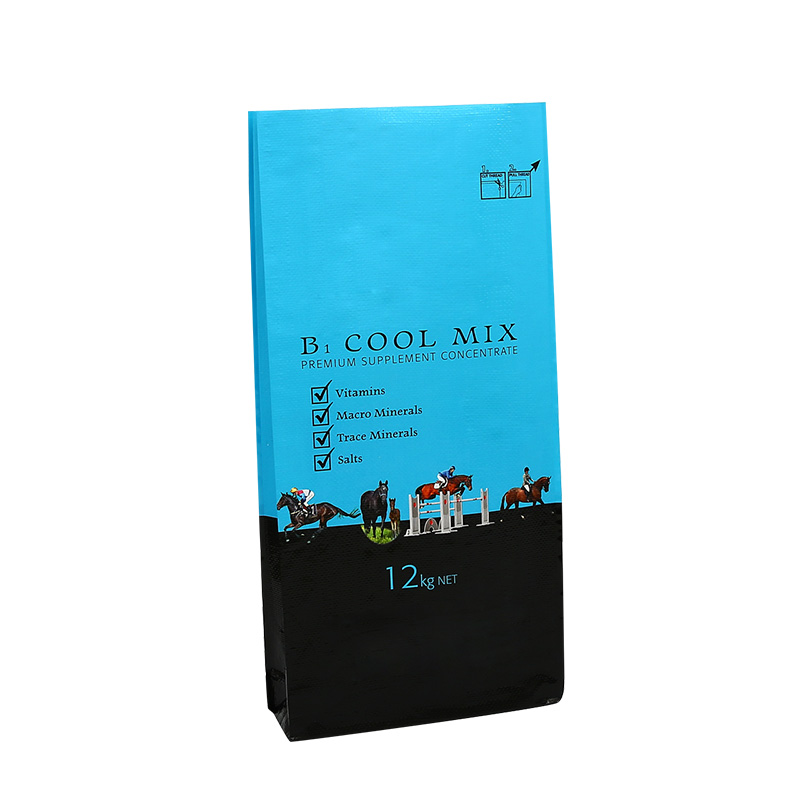Traditional plastic bags, widely used for their convenience and low cost, have raised environmental concerns due to their non-biodegradable nature and contribution to pollution. As companies and consumers seek eco-conscious solutions, eco-friendly alternatives to traditional plastic bags are emerging as practical and responsible options.

One notable alternative is the woven rice bag, a durable and reusable packaging solution often made from polypropylene (PP) or other recyclable materials. Originally designed for agricultural applications, woven rice bags have expanded into multiple industries due to their strength, flexibility, and ability to protect products during transport. Unlike conventional plastic bags, these bags provide a stable structure that prevents tearing or spillage, which is particularly valuable for bulk materials such as grains, rice, and fertilizers. Additionally, woven rice bags can be reused multiple times, reducing waste and lowering overall environmental impact.
Another growing trend in sustainable packaging is the adoption of eco friendly product packaging across consumer goods and industrial sectors. Eco-friendly packaging refers to materials and designs that do less environmental harm through the use of recyclable, biodegradable, or renewable resources. Many manufacturers are redesigning their packaging processes to incorporate materials such as recycled paper, compostable plastics, and woven fabric alternatives. This approach allows businesses to maintain functional and protective packaging while addressing environmental concerns. Moreover, eco-friendly product packaging can improve a brand's reputation by demonstrating commitment to sustainable practices and responsible resource management.
While woven rice bags and eco-friendly packaging solutions are gaining attention, traditional PE bag packaging still dominates certain markets due to its affordability and widespread availability. PE, or polyethylene, bags are lightweight, moisture-resistant, and versatile for a variety of applications. However, their single-use nature and limited recyclability have prompted industries to seek alternatives. Companies are increasingly combining PE bag packaging with recyclable or biodegradable options or gradually replacing them with woven or composite bags. This transition not only reduces plastic waste but also aligns with evolving environmental regulations and consumer preferences.
The use of woven rice bags and eco-friendly product packaging extends beyond agriculture. Many industries, including food and beverage, construction, and chemical products, are exploring these alternatives to meet sustainability goals. Woven rice bags, for example, can carry heavy industrial materials safely while maintaining reusability. Similarly, eco-friendly product packaging enhances presentation and durability for consumer goods while reducing environmental footprint. These alternatives demonstrate that sustainability does not necessarily compromise functionality or efficiency.
In addition to material choice, innovation in bag design contributes to environmental benefits. Manufacturers are now producing multi-layer woven rice bags and composite structures that combine strength, moisture resistance, and recyclability. Such designs allow for a longer lifespan and multiple uses, reducing the demand for single-use plastic bags. Likewise, incorporating biodegradable coatings or inks in eco-friendly product packaging enhances its environmental performance while maintaining product safety. Even in markets where PE bag packaging remains prevalent, small modifications, such as using recycled PE material or encouraging reuse, can contribute to waste reduction.
Consumer behavior also plays a significant role in the adoption of eco-friendly alternatives. Awareness campaigns and educational programs inform users about the environmental impact of traditional plastic bags and the benefits of reusable or biodegradable options. By promoting the reuse of woven rice bags and selecting eco-friendly product packaging, consumers actively participate in reducing waste and supporting sustainability initiatives. Retailers and distributors are responding by offering incentives for reusable bag usage, integrating recycling programs, and highlighting environmentally responsible packaging on product labels.
Ultimately, the movement toward eco-friendly alternatives to traditional plastic bags reflects a broader shift in society's approach to environmental stewardship. Woven rice bags, eco-friendly product packaging, and thoughtful modifications to PE bag packaging exemplify practical steps industries and consumers can take to reduce plastic waste and conserve natural resources. As demand for sustainable solutions grows, these alternatives will continue to evolve, supporting a more responsible and environmentally conscious future for packaging.


 English
English Español
Español عربى
عربى
